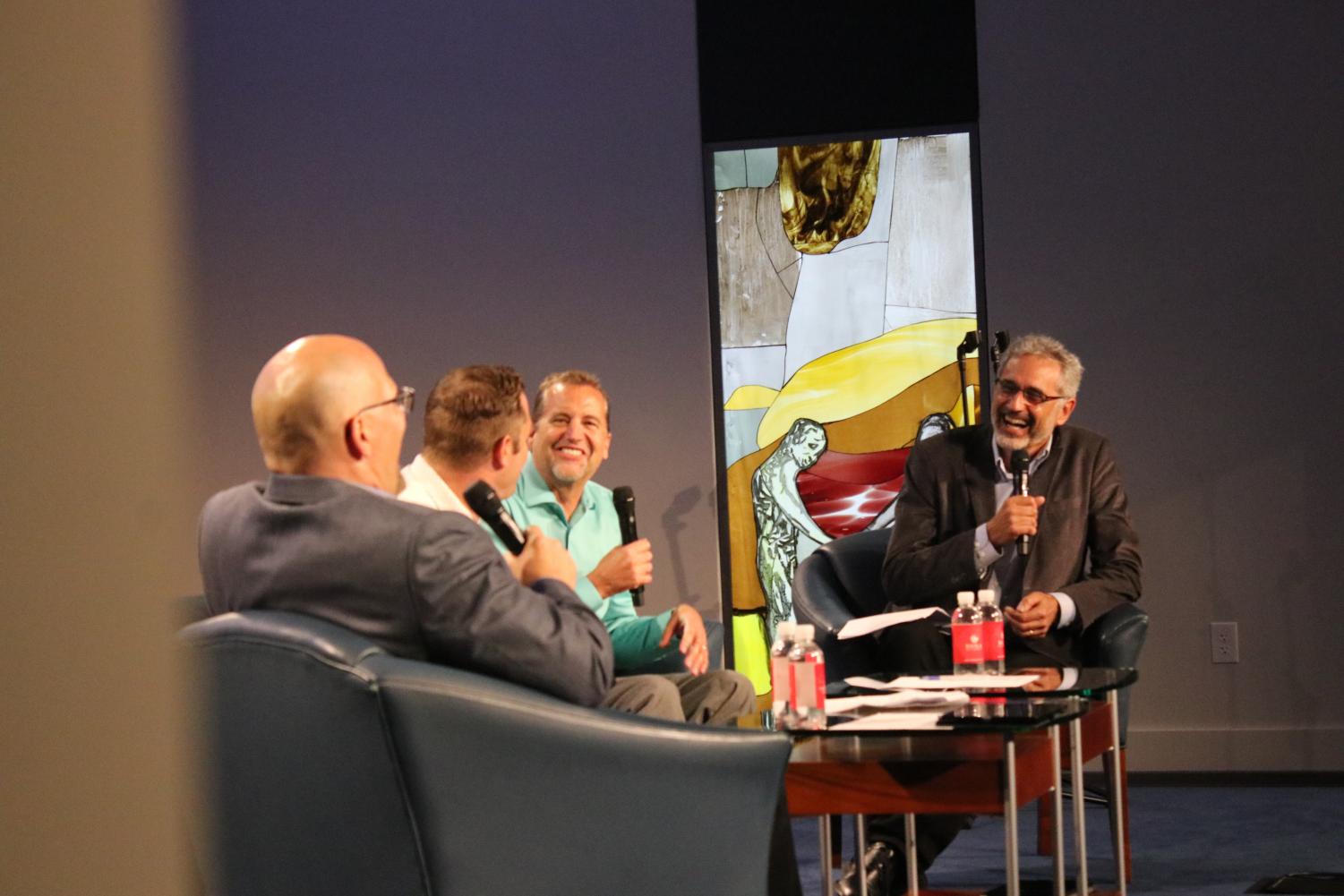Sociology professor Brad Christerson and biblical and theological studies professor Thaddeus Williams publicly discussed their differing viewpoints on how Christians should approach social justice in light of the Gospel on Oct. 3.
President Barry Corey started these Duologues in the spring semester of 2018, making this semester the second installment. Speakers, drawn from faculty members, have promoted the initiative as a way to teach students how to have healthy and productive discussions about issues they disagree on by speaking about some of these topics on stage.
IT STARTS WITH A CONVERSATION
The first portion of the Duologue kick-started Wednesday morning in Chase Gymnasium during an All Community Chapel where Christerson and Williams each presented their main arguments in ten-minute TED Talk-like segments. The moderators, communication studies professor Tim Muehlhoff and biblical and theological studies professor Richard Langer, introduced the Duologue by reminding students of its purpose—to model a conversation that helps individuals understand differing opinions and identify common core convictions, rather than change the other person’s mind.
“When people see our disagreements, they better see something different,” Muehlhoff said.
Christerson and Williams hope that students will learn to retain their diverse opinions while recognizing their shared core faith.
“We can disagree about things and learn from each other while both having the same goal to serve Jesus to the best of our abilities. That unity allows us to disagree about things,” Christerson said.
Students expressed gratitude for the efforts of Biola’s faculty in addressing these hard topics. Senior kinesiology major Bailey McGeough felt Christerson, Williams and the moderators directed the conversation well and hopefully set a good example for future discussions.
“I am very surprised that Biola held a discussion like this, but I’m very happy that it was had. I thought it was really nice that, when it got too intense, they refocused the conversation to keep it civil. They were trying to listen to each other and respond back,” Bailey said.
The discussion continued that evening in Calvary Chapel, where the professors were finally able to respond to each other’s points. The conversation was facilitated by Muehlhoff and Langer who came prepared with questions, but later, the panel was opened to the audience for Q&A.
UNDERSTANDING STANCES
Williams’ main point was, “Contend for the faith that was once for all and entrusted to the saints.” Williams grew up exposed to inequalities through traveling and formed a sense of injustice early in life because of it. He explained that the more he studied theology, the more he understood how precious the Gospel is and that we need to be careful not to lose the Gospel in favor of social justice in the 21st century.
In response, Christerson described his position, saying, “Our faith in Jesus compels us to seek justice, and that includes reforming systems that are unjust.”
He described how growing up in a middle-class community in Colorado left him unaware of the privileges he had and of how different others’ experiences were from his own. It took a non-Christian sociology professor in college to open his eyes to the suffering in this world and force him to ask, “What does God say to do in this broken world?”
Both professors emphasized the importance of pursuing a biblical understanding of justice that allows for the freedom to act with confidence and love.
“The Gospel matters. Justice matters. And we need to think biblically about both because there is just way too much at stake,” Williams said.
When the event ended, students and faculty, including Williams and Christerson, gave a roaring applause and immediately discussed opinions among one another.
“I came tonight to hear both perspectives—which was so limited. There are so many perspectives of oppression because everyone has been dehumanized at some point,” said senior business major Tinisee Kandakai. “I think it’s a huge reminder that we’re going to offend one another because offense comes on an individual level, but I’m glad that we’re making efforts to shine light on this issue because it’s a very real thing.”











